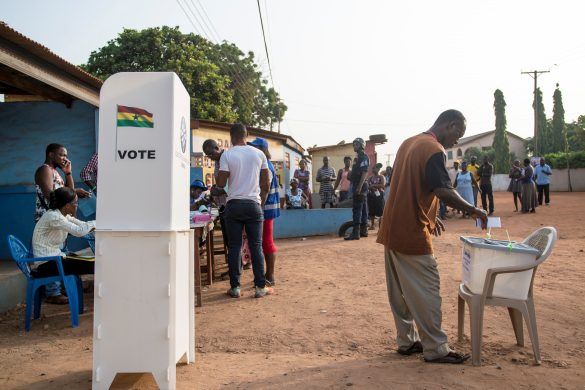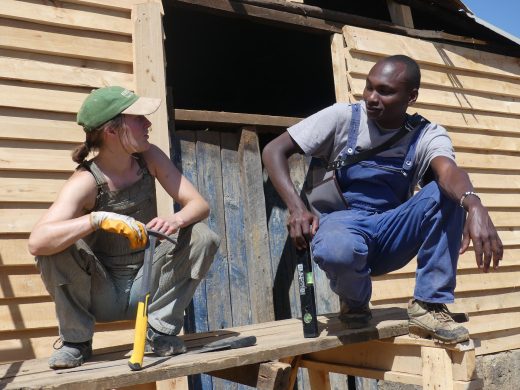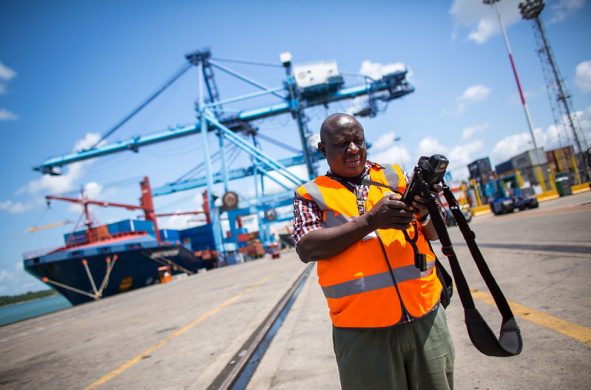I erkendelsen af, at manglen på sanitet og rent drikkevand har dramatiske konsekvenser for millioner af menneskers helbred, værdighed og sikkerhed, udnævnte FN’s generalforsamling i sommer den 19. november til World Toilet Day – og med god grund.
Mindst 2.000 børn dør hver dag af diarré, det økonomiske tab ved dårlig sanitet er 260 milliarder dollars årligt i udviklingslandene, og flere mennesker har en mobiltelefon end et toilet – nemlig seks milliarder mod 4,5 milliarder.
Det betyder,at 2,5 mia. jordboere, de fleste ude på landet, ikke oplever rimelige sanitære forhold. Dertil kommer, at 1,1 milliard stadig forretter deres nødtøft i det fri – dvs stort set alle steder, hvor de kan komme til det.
Men også i takt med, at folk flytter fra land til by, er sanitet blevet en mangelvare i mange u-lande. Bl.a. i Ghana, som er langt bagud på 2015 mål nummer syv om vand og sanitet.
Overraskende toilet-research
Alligevel hjalp frembringelsen af latriner kun delvist på problemet, opdagede antropologen Christopher P. Furlan fra Københavns Universitets Copenhagen School of Global Health da han tog på feltarbejde i rendestenen og blandt landets lokummer. Det følgende er et sammendrag af hans research:
“In many developing countries infrastructure is unable to match the sanitation needs of the population.
Ghana like many of the countries on the African continent is faced with such a problem and is behind on meeting the sanitation targets set by the Millennium Development Goals (MDG) for water and sanitation.
As a result people are getting sick, leading to wider social issues.
A current method aimed at improving the sanitation landscape in Ghana is to use business and marketing to promote investment in household latrine systems.
This technique aims at meeting coverage by having each household purchase an appropriate latrine system, thus improving the over all health situation.
This thesis is written with this approach in mind, and in collaboration with the Sustainable Sanitation project — Ghana (SUSA). SUSA is a Danida sponsored project taking place in a rapidly urbanising poor Ghanaian fishing village with a high rate of open defecation.
The original aim of this thesis was to employ ethnographic methods to provide inputs into marketing strategies by exploring the motivations and barriers for household latrine uptake.
However, the fieldwork revealed a fundamental flaw in using latrine uptake to improve the health situation concomitant to (som følge af) sanitation — people who had invested in private household latrines were not necessarily using them, instead continuing to defecate openly (forrette deres nødtørft i det fri).
Further fieldwork revealed a myriad of paradoxical and unique practices surrounding people who had invested in private latrines, including exclusion, forms of social defecation, and preferences for open defecation.
Moreover, the continued construction of public facilities provides an alternative to private latrine investment.

Currently there is a high demand for these facilities although they are not widely utilised.
Withal, people with and without access to private facilities almost all complained about embarrassing situations arising from open defecation, however they continued to place themselves in these situations rather than use the public facilities that would alleviate the suffering they felt.
What these practices reveal is that there are significant social and cultural issues influencing sanitation, which are equally as important as technology.
Whilst using marketing to get people to construct latrines in their households will help in meeting the MDG targets for sanitation, it will not necessarily improve the health problems that arise from poor sanitation.”
FAKTA:
While a vast majority of the world’s population has access to mobile phones, one third of humanity (2.5 billion people) do not have access to proper sanitation, including toilets or latrines, with dramatic consequences on human health, dignity and security, the environment, and social and economic development.
To address these issues, the “Sanitation for All” Resolution (A/RES/67/291) was adopted by the United Nations General Assembly in July 2013, designating 19 November as World Toilet Day.
The lack of improved sanitation largely contributes to the fact that almost 2,000 children die every day from preventable diarrhoeal diseases. It also impacts vulnerable populations such as persons with disabilities and women, who are more exposed to sexual violence. Lack of private toilets in schools is a major reason why girls do not continue their education once they enter puberty.
Poor sanitation and water supply also result in economic losses estimated at $260 billion annually in developing countries.
World Toilet Day aims to change both behaviour and policy on issues ranging from enhancing water management to ending open-air defecation (which 1.1 billion people practice worldwide). Kilde: FN.
Se hele omtalen af dagen i FNs Nyhedstjeneste på
http://www.un.org/apps/news/story.asp?NewsID=46529&Cr=toilet&Cr1=#.Uov19GV1T4s














